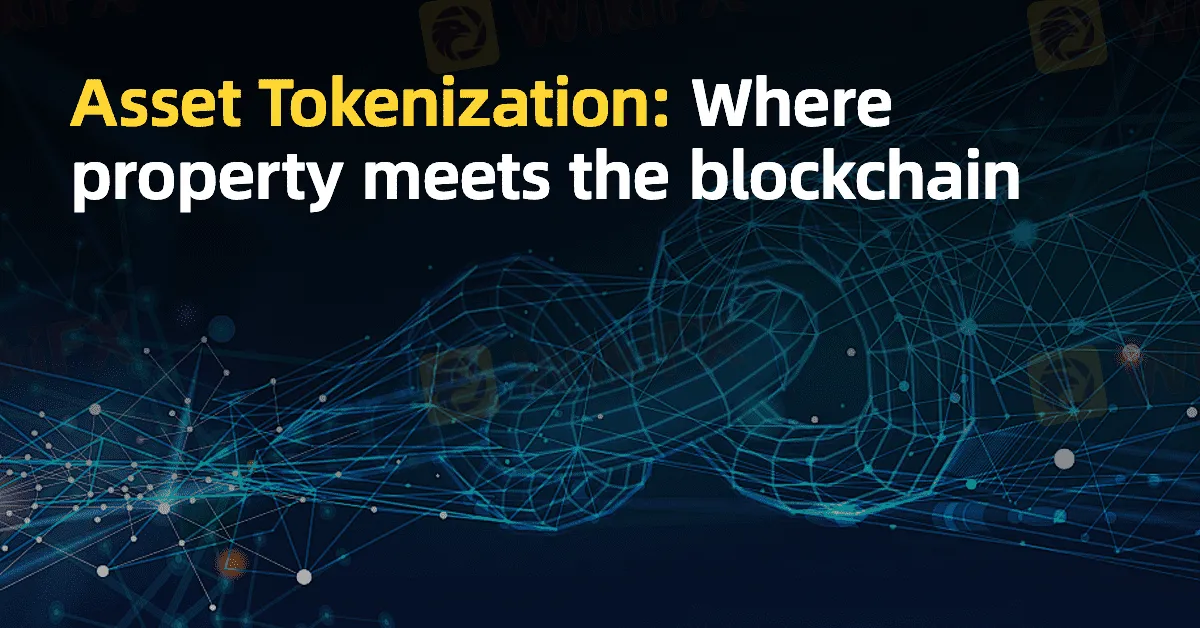简体中文
繁體中文
English
Pусский
日本語
ภาษาไทย
Tiếng Việt
Bahasa Indonesia
Español
हिन्दी
Filippiiniläinen
Français
Deutsch
Português
Türkçe
한국어
العربية
Asset Tokenization: Where property meets the blockchain
Abstract:Asset tokenization is the innovative process of transforming rights to both physical and digital assets into digital tokens on a blockchain.

Understanding Asset Tokenization
Asset tokenization is the innovative process of transforming rights to both physical and digital assets into digital tokens on a blockchain. This process can generate fungible tokens, which are interchangeable, or non-fungible tokens (NFTs), representing distinct assets. The choice of token type hinges on the nature of the asset and its intended application. By enabling tokenization, we can enhance traditional ownership verification methods—like deeds and titles—allowing for more accessible fractional ownership. For instance, tokenizing a commercial property could enable multiple investors to own shares in that property.
Advantages of Asset Tokenization
1. Tokenization allows assets to be divided into smaller, tradable units, facilitating shared ownership among multiple investors.
2. By enabling fractional ownership, tokenization opens the door to asset investments for individuals across various financial backgrounds.
3. Tokenized assets can be more easily traded, potentially enhancing market liquidity.
4. The transparency inherent in blockchain technology ensures that all participants have access to the same information.
5. By reducing the need for intermediaries, tokenization could lower the costs associated with buying and selling assets.
Challenges of Asset Tokenization
1. Legal Recognition Issues: Current legal frameworks may not recognize tokenized asset ownership, creating challenges in enforcement.
2. The rapidly changing landscape of laws surrounding tokenized assets can complicate compliance and diminish investor protections.
3. Tokenized assets, particularly those traded on secondary markets, may experience significant price fluctuations, risking investor capital.
4. Unique assets can be difficult to value accurately, complicating investment decisions.
Conclusion
Asset tokenization marks a transformative step forward in merging real estate with blockchain technology, providing exciting prospects alongside significant hurdles. As this field evolves, stakeholders can explore how fractional ownership and enhanced accessibility can reshape investment landscapes, all while navigating the complexities of regulation and market integration.

Disclaimer:
The views in this article only represent the author's personal views, and do not constitute investment advice on this platform. This platform does not guarantee the accuracy, completeness and timeliness of the information in the article, and will not be liable for any loss caused by the use of or reliance on the information in the article.
Read more

New Zealand's FMA Warns Against "YouTube Crypto Investment Scam"
The Financial Markets Authority (FMA), New Zealand's financial regulator, warns individuals against investment scams that use YouTube channels to promote fraudulent cryptocurrency investment firms/websites. The authority explained on its official website how the YouTube cryptocurrency scam works, providing a step-by-step guide to help people recognize and avoid it. Read HOW THE SCAM WORKS and BE SAFE.

Trading is an Endless Journey
Every trader dreams of quick success, but rushing the process often leads to mistakes. It’s easy to get swept up in the excitement of winning trades or discouraged by unexpected losses. The truth is, mastering the emotional side of trading can be even more important than understanding market analysis or strategies.

How to Know if the Market is Correcting or Reversing?
In trading, distinguishing between a market correction and a market reversal is crucial for making sound decisions. Misjudging one for the other can lead to missed opportunities or significant losses. While both involve price movements, their causes, duration, and implications differ substantially. Understanding these differences can help traders improve their strategies and adapt to market conditions effectively.

The Hidden Checklist: Five Unconventional Steps to Vet Your Broker
Forex broker scams continue to evolve, employing new tactics to appear credible and mislead unsuspecting traders. Identifying these fraudulent schemes requires vigilance and strategies beyond the usual advice. Here are five effective methods to help traders assess the legitimacy of a forex broker and avoid potential pitfalls.
WikiFX Broker
Latest News
Two Californians Indicted for $22 Million Crypto and NFT Fraud
RM62k Lost Investment Scam After Joining XRP Community Malaysia on Telegram
Victims of Financial Fraud in France Suffer Annual Losses of at Least €500 Million
WikiFX Review: Is Ultima Markets Legit?
Colorado Duo Accused of $8M Investment Fraud Scheme
What Impact Does Japan’s Positive Output Gap Have on the Yen?
Macro Markets: Is It Worth Your Investment?
Trading is an Endless Journey
SEC Warns on Advance Fee Loan Scams in the Philippines
Malaysia Pioneers Zakat Payments with Cryptocurrencies
Currency Calculator


